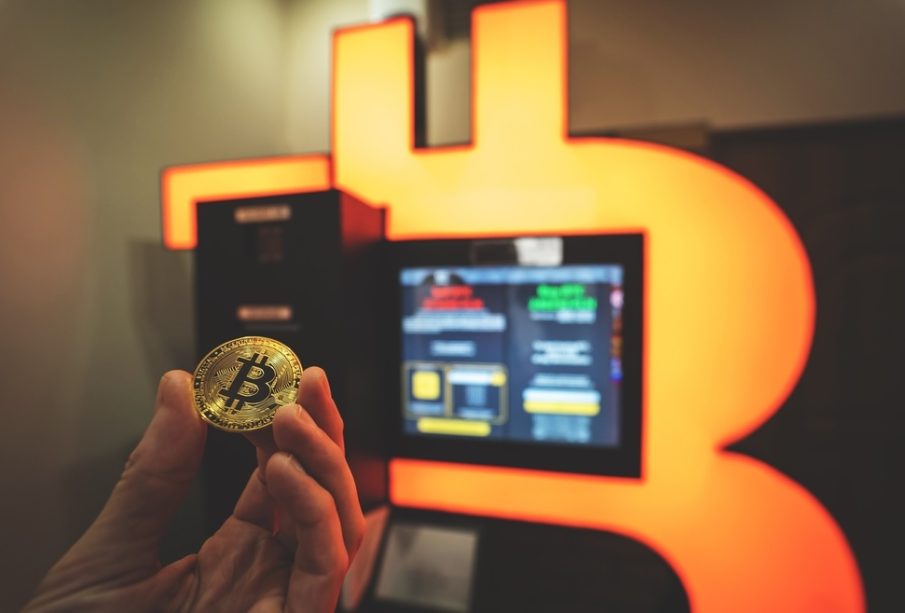Bitcoin Unveiled: A Thoughtful Examination of the World’s First Digital Currency

Introduction: The Digital Gold Rush of the 21st Century
When Bitcoin first emerged in 2009, few could have imagined the seismic waves it would send through the global financial landscape. Conceived during the aftermath of a devastating financial crisis, Bitcoin was envisioned not merely as an alternative currency but as a radical reimagining of how value could be stored, transferred, and secured without the oversight of central banks or traditional gatekeepers. More than a decade later, Bitcoin has become both a buzzword and a battleground—a subject of passionate debate, fervent investment, and philosophical reflection.
The Genesis: Satoshi Nakamoto’s Revolutionary White Paper
Bitcoin’s origin story reads almost like a digital legend. In October 2008, a mysterious figure—or collective—under the pseudonym Satoshi Nakamoto published a white paper titled Bitcoin: A Peer-to-Peer Electronic Cash System. In elegant, concise prose, Nakamoto outlined a vision for a decentralized digital currency that could be transferred directly between individuals, secured by cryptographic proof rather than institutional trust.
The key innovation lay in solving the “double-spending problem” that had long plagued digital money. By introducing blockchain technology—a transparent, distributed ledger maintained by a network of computers—Bitcoin could verify transactions and ownership without a central authority.
How Bitcoin Works: A Layman’s Explanation
At its core, Bitcoin is remarkably simple yet technically sophisticated. Users store bitcoins in digital wallets and use private keys to authorize transactions. Every transaction is verified by a network of miners—computers that solve complex mathematical puzzles to add new blocks to the blockchain. This process, known as mining, not only secures the network but also issues new bitcoins, capping the total supply at 21 million coins.
The fixed supply is intentional, designed to mimic the scarcity of precious metals like gold. This scarcity is one reason Bitcoin is often dubbed “digital gold,” a modern store of value immune to the whims of inflationary monetary policy.
Bitcoin’s Appeal: Why Do People Buy In?
Bitcoin’s rise is not solely a story of technology but of human psychology and socio-economic discontent. Its appeal is multi-faceted:
-
Decentralization: Bitcoin is free from central banks or governments, appealing to those who distrust traditional financial institutions.
-
Scarcity: The finite supply creates a perception of digital scarcity, driving the narrative of Bitcoin as a hedge against inflation.
-
Portability and Divisibility: Unlike gold bars or bundles of cash, Bitcoin can be transferred globally in minutes and divided into tiny fractions, making it accessible to virtually anyone with an internet connection.
-
Speculative Opportunity: For many, Bitcoin represents a chance for outsized returns, though this speculative drive also fuels its notorious volatility.
Bitcoin as a Store of Value: Digital Gold or Fool’s Gold?
One of the most persistent debates around Bitcoin is whether it genuinely serves as a store of value. Proponents argue that in an era of massive monetary stimulus and ballooning national debts, Bitcoin’s programmed scarcity offers a hedge against fiat currency devaluation. Major institutions and public companies have begun adding Bitcoin to their balance sheets, further legitimizing this narrative.
Skeptics, however, point to its wild price swings as evidence that Bitcoin remains far from a stable store of value. They question whether an asset that can lose half its value in weeks can truly be considered “digital gold.”
Bitcoin and the Broader Crypto Ecosystem
Though Bitcoin was the first, it did not remain alone for long. Its creation inspired thousands of other cryptocurrencies—Ethereum, Litecoin, and countless others—each proposing unique use cases and innovations. Yet Bitcoin remains the anchor of the crypto market, a benchmark by which other coins are measured. It is the first point of entry for most investors and the asset that continues to command the lion’s share of market capitalization.
Regulation: Friend or Foe?
As Bitcoin gained traction, it inevitably attracted the watchful gaze of regulators worldwide. Governments grapple with how to classify and control this borderless, anonymous currency. Some nations embrace it as legal tender, as El Salvador famously did, hoping to leapfrog traditional banking infrastructure. Others impose strict bans, citing concerns about fraud, tax evasion, and capital flight.
The regulatory environment remains fluid and fragmented, creating both uncertainty and opportunity for Bitcoin’s future trajectory.
Risks and Considerations: A Cautionary Note
For all its promise, Bitcoin is not without substantial risks:
-
Volatility: Its price can soar or plummet on a tweet, a policy shift, or a shift in investor sentiment.
-
Security: While the blockchain is secure, exchanges and wallets can be hacked, and lost private keys mean lost coins—forever.
-
Regulatory Uncertainty: Future legislation could restrict trading, impose taxes, or even outlaw certain uses of cryptocurrency.
-
Environmental Impact: Bitcoin mining consumes significant energy, raising ethical questions in a world increasingly concerned with sustainability.
A Sensible Approach: Investing in Bitcoin Wisely
For those intrigued by Bitcoin, caution and prudence are key. It is wise to view Bitcoin not as a guaranteed path to wealth but as a speculative asset deserving of careful consideration.
-
Allocate Responsibly: Many financial advisors suggest limiting crypto holdings to a small percentage of an overall portfolio.
-
Use Secure Wallets: Understand how to store Bitcoin safely, whether through reputable exchanges or cold storage.
-
Stay Informed: The crypto world evolves rapidly; staying educated is essential.
-
Resist Herd Mentality: Make decisions based on research and personal financial goals, not hype or fear of missing out.
Conclusion: Bitcoin’s Enduring Legacy
Whether Bitcoin will ultimately replace fiat currencies, coexist alongside them as “digital gold,” or fade into history as an ambitious experiment remains to be seen. What is undeniable is that Bitcoin has already transformed how we think about money, value, and trust in the digital age.
It has inspired a generation of developers, investors, and thinkers to question the status quo and explore a future where financial power can be decentralized and democratized. For those who approach it thoughtfully, Bitcoin is not merely a speculative token but a symbol of technological ingenuity and human curiosity—a modern expression of our timeless quest for freedom, security, and control over our own destinies.










